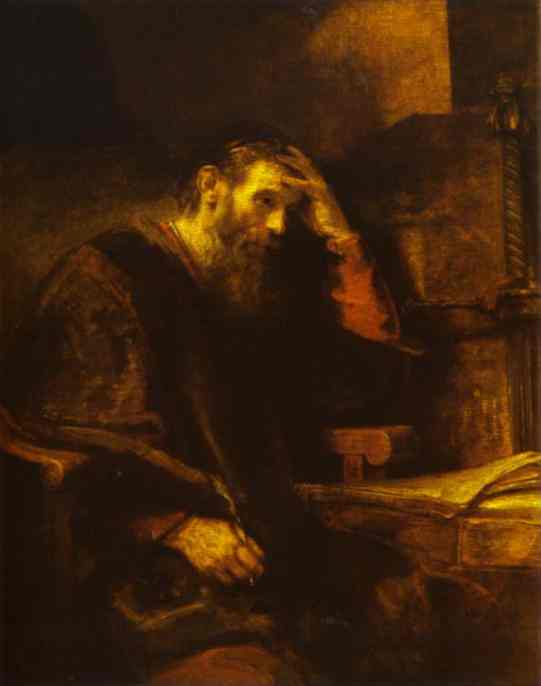Lots to Learn from Reading Obituaries
 Thursday, February 27, 2014 at 08:52AM
Thursday, February 27, 2014 at 08:52AM  I'm a creature of habit. I still read the morning newspaper before I turn on my computer. And as I read my morning paper, I always take time to read the local obituaries. There is much to learn, I think, from what people record in public documents when someone they love dies.
I'm a creature of habit. I still read the morning newspaper before I turn on my computer. And as I read my morning paper, I always take time to read the local obituaries. There is much to learn, I think, from what people record in public documents when someone they love dies.
Several things are pretty clear. People in Orange County no longer die. Instead, they "pass away." For years, my dear friend, Rod Rosenbladt, has harped on me to stop saying people "pass away" (which was made popular by the likes of Mary Baker Eddy). Things "pass away" (cf. 2 Peter 3:10) and cease to exist, but people (who have immortal souls) die. They die because of Adam's sin and the curse. A few obits still indicate that people "die," but they now "pass away" at a clip ten times greater.
It also strikes me that even in evangelical dominated OC, there are far more Roman Catholic obituaries listed than Protestant ones. The likely reason for this is that even nominal Roman Catholics will have burial/death rites conducted in their home church, even if the funeral takes place in the local mortuary. Protestants tend to conduct funerals in mortuaries and at graveside, and will, on occasion, hold memorial services in their churches (but these are not often mentioned in the obituary, even if the burial is). A nominal Protestant funeral in a local mortuary will not mention a home church--even if there is one. I have conducted many funerals in local mortuaries and at graveside, but have never done a funeral at Christ Reformed where the deceased's coffin has been brought into the sanctuary for a traditional funeral service before burial. This situation creates the perception that Roman Catholics have a much closer tie to the local church than Protestant evangelicals do.
Related to the above, I've also noticed that fewer and fewer obituaries make any reference whatsoever to the deceased's church/religious affliation. There are occasional references to someone's service in their church (one recent obit mentioned that a man had been a deacon in his church for over fifty years!), or to their faith in Christ (in the true evangelical sense), but the practice is far less common than it used to be. Jews often post a Star of David in the obit, and others post Lodge or other symbols of fraternal organizations. But you won't see many (if any) Lutheran, Methodist, or Presbyterian denominational symbols. Often times, the fraternal symbols win out over the religious one (if both church and fraternal organizations are mentioned in the obit).
I often chuckle at what I call the "evangelicalization" of Roman Catholicism in OC. Many Roman obits refer to the fact that the departed "loved Jesus" and is now in heaven--the person writing the obit apparently forgetting about Limbus Patrum and the need for the departed to "undergo purification" in Purgatory (cf. The Catechism of the Catholic Church, secs. 1030-32). How can grandma be anything but a saint, right? But the Roman view requires grandma to spend some time in purification, because she failed to confess to her priest that she said a four-letter word when the Thanksgiving turkey didn't turn out right, that she made a face at her neighbor, and for thinking that some of her grandchildren are obnoxious brats.
One of the sad realities in reading obits is the rapid decline of the so-called "Greatest Generation." World War Two vets are dying by the score. We will miss their courage and wisdom. Our local Medal of Honor recipient (from D-Day) recently died, and the nearby community center named in his honor didn't even bother to lower their flag to half-mast. I am afraid people younger than I don't know how great these men are, or what they accomplished on their nation's behalf. Our community will miss them all, greatly.
Finally, all kinds of sappiness and religiosity comes out in obits. One child opined that "grandma is making heaven a better place." Another sought comfort in the belief that his father was golfing in heaven with all his buddies, and would finally get his "hole in one." The worst of the past week's obits was that of an elderly woman, who's family wrote of her, "she passed into the next phase of her energy force," but then went on to mention that her funeral was to be held in an Episcopal church on the east coast. As loopy as liberal Episcopalians have become, this really should be no surprise.
Reading your local obituaries will go a long way in reminding you of the inescapable fact that "in Adam's fall, sinned we all." Death and taxes may be inevitable, and both are the consequence of human sin. Reading obituaries is a good way to understand what people in your neighborhood believe about God and the world, what they regard as important, and how they view life.








